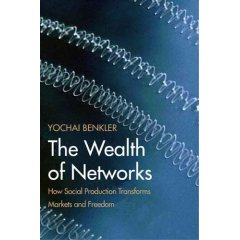
With the 2008 primary elections quickly approaching, the subject of the media's role in political campaigns is in the back of many minds. And if it's not, it should be. It doesn't matter if a candidate has a strong message unless the candidate has a good media strategy. Consider Fred Thompson - he has what he Opinion Journal argues is "more ambitious than anything we've seen so far from the rest of the GOP field." He wants to get rid of the Alternative Minimum Tax, cut the corporate income tax, and implement a voluntary flat tax. That's right- a voluntary flat tax. Did you know this? I didn't. Why? Because Thompson doesn't have an adequate media machine like Giuliani, Romney and Huckabee. (it's also partially because Thompson doesn't articulate his plans during debates; he focuses on attacking the frontrunners).
Anyway, the book tells it like it is: for a candidate to win an election, he or she must have a good public image. Unfortunately, this results in candidates and elected officials being preoccupied with public image instead of giving straightforward answers.
The book also touches on the media's tendency to gloss over their mistakes (i.e.: WMD's in Iraq and Saddam Hussein's involvement in the 9/11 attacks).
For more information on the book, read the transcript from an online discussion with Shanto Iyengar.
Next: Wealth of Networks by Yochai Benkler.

In case you aren't familiar with what constitutes a "networked economy," think of Facebook and its applications- though the applications are Facebook applications, they are made by users, not by Facebook itself. It is the value added by the users in the form of applications that exemplifies a networked economy.
One of the main points of this book is that networked economies cannot be treated like traditional economies.
Furthermore, Benkler talks about the power of the internet to allow everyone to have their say (and be heard) and claims this is indeed a good thing after years of dealing with top-down, centralized media in which the user has no real way to contribute.
To show how dedicated Benkler is to the cause of networked economies, as well as the "creative commons," he has allowed his book to be edited by readers. Visit the book's wiki by clicking here.

No comments:
Post a Comment